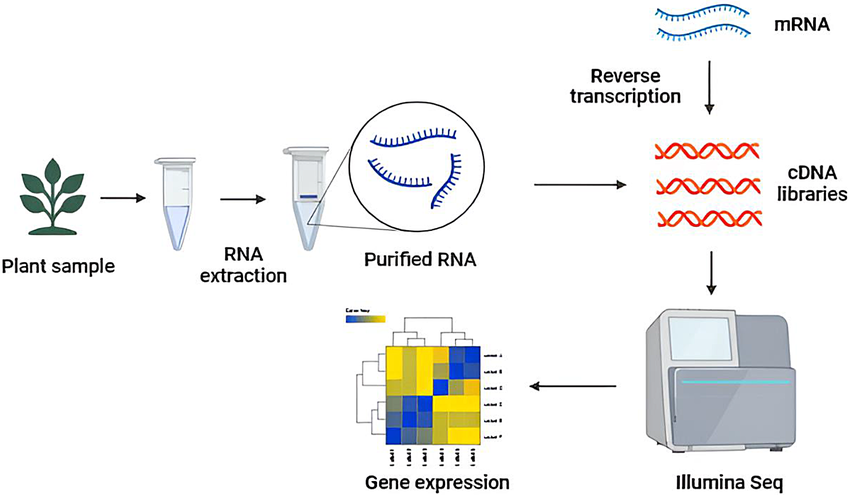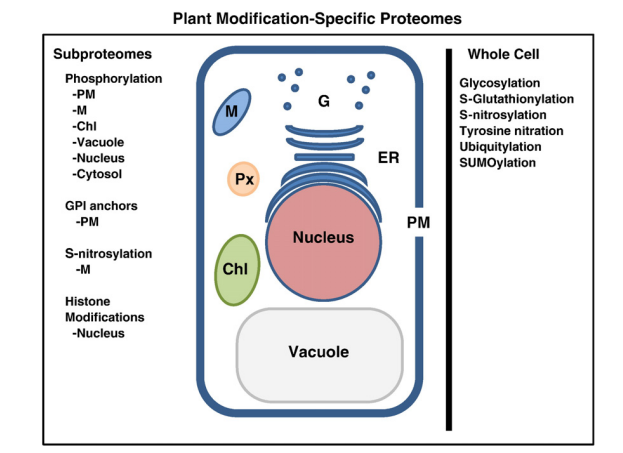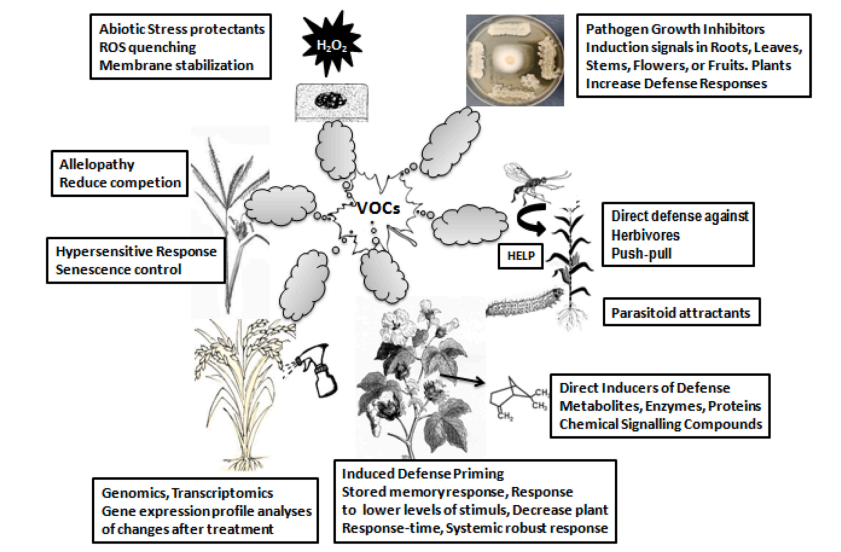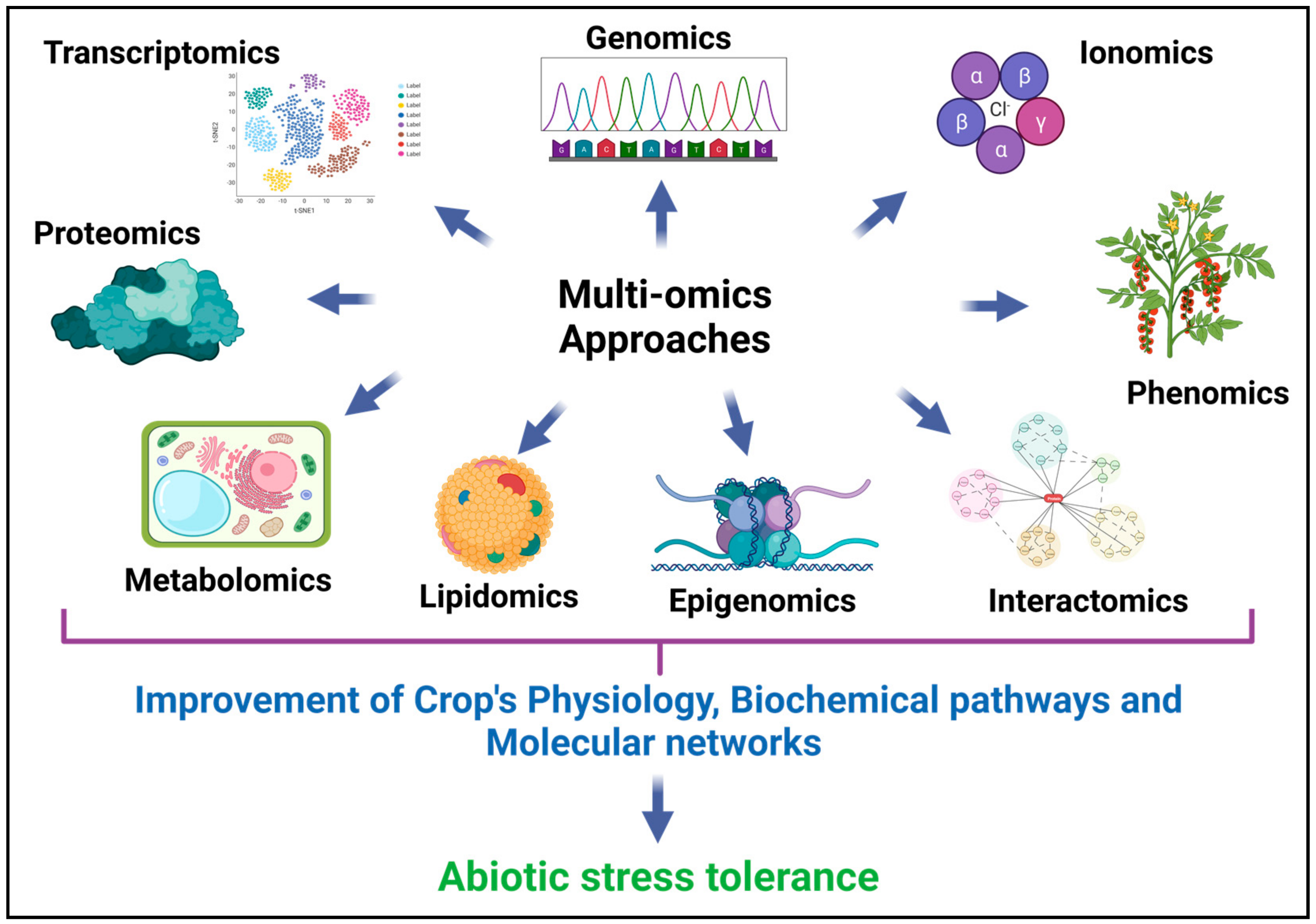Agricultural and Plant Research
- Comprehensive transcriptome expression profiling and quantitative analysis
- Characterization of transcriptional products such as mRNA, lncRNA, and small RNA
- Analysis of transcriptional activity variations across different tissues or treatments
- Evaluation of correlations between transcriptional levels and metabolic or protein changes
- Studying molecular responses of plants under drought, salinity, light, temperature, or pathogenic stress
- Analyzing transcriptional characteristics across plant tissues or developmental stages
- Assessing the impact of hormones, nutrients, or environmental factors on overall transcriptional activity
- Quantitative analysis of the complete proteome (TMT/iTRAQ/SILAC)
- Detection and quantification of post-translational modifications (PTMs)
- Functional annotation and pathway enrichment of differential proteins
- Protein interaction network and signal regulation pattern analysis
- Studying signal transduction and stress adaptation processes
- Exploring protein modification events induced by environmental changes
- Analyzing regulatory mechanisms of energy metabolism and antioxidant systems
- Untargeted metabolite profiling and differential metabolite identification
- Targeted quantitative analysis of metabolites
- Pathway enrichment and metabolic feature interpretation
- Evaluation of secondary metabolite composition and dynamic changes
- Investigating the processes of plant quality formation and nutrient accumulation
- Analyzing metabolic remodeling and defense responses under stress conditions
- Assessing the composition and content of active compounds in medicinal plants
- Integration and standardization of multi-omics datasets
- Molecular association network and signaling pathway modeling
- Modular regulatory relationship analysis and visualized presentation
- Functional pattern identification and dynamic mechanism prediction
- Elucidation of multi-level molecular response mechanisms
- Collaborative studies of quality formation and energy metabolism
- Modeling of environmental adaptation and signal regulation systems
- Cryo-EM and TEM for subcellular and macromolecular structure observation
- SEM for surface morphology and tissue characterization
- XRD and CD for molecular conformation and crystallinity analysis
- Spectroscopic and imaging methods for assessing structural dynamics under environmental or chemical perturbations
- Studying plant cell wall structure and its role in stress resistance
- Characterizing structural changes in chloroplasts, mitochondria, or storage organelles
- Evaluating protein and pigment conformation in photosynthetic and metabolic processes
- Linking structural alterations with multi-omics data for integrated functional interpretation
- Accepted Sample Types: Leaves, flowers, roots, stems, fruits, seeds, root nodules, and rhizosphere tissues.
- Recommended Storage: Snap-freeze samples in liquid nitrogen and store at −80 °C to prevent repeated freeze-thaw cycles.
- Testing Items: Assessment of RNA, protein, and metabolite purity and integrity.
- Comprehensive Quality Control: Multi-level quality monitoring is implemented throughout the stages of sample preparation, detection, and data analysis.
In agricultural science and plant biology research, multi-omics analysis has become an important approach for revealing plant physiological activities, environmental responses, and quality formation. MtoZ Biolabs is committed to providing high-quality, customizable research services for research institutions, agricultural enterprises, and plant biotechnology teams. By integrating transcriptomic, proteomic, and metabolomic analyses, we help clients systematically understand plant physiological changes and adaptive mechanisms, providing reliable data support for crop improvement and functional studies.
Relying on advanced technological platforms and multi-omics data integration capabilities, MtoZ Biolabs’ agricultural and plant research services include, but are not limited to: plant transcriptome-level analysis, proteomics and modification studies, targeted and untargeted metabolomic analysis, stress response mechanism exploration, and evaluation of plant quality and resistance characteristics.
Services at MtoZ Biolabs
1. Plant Transcriptome Analysis
Techniques Used: RNA-Seq, small RNA-Seq
MtoZ Biolabs provides high-throughput transcriptome analysis services designed to systematically investigate the composition and expression profile characteristics of transcriptional products in plants under different physiological states, environmental conditions, or treatment methods. By detecting and quantifying RNA molecules at the overall level, we reveal transcriptional activity patterns and functional response trends of plants under external stimuli or developmental changes.
Service Content:
Typical Applications:
The transcriptome platform at MtoZ Biolabs provides clients with high-resolution transcriptional data, helping researchers comprehensively understand transcriptional dynamics in plants under various conditions and laying a solid foundation for subsequent proteomic and metabolomic studies.

Akntar, N. et al. Functional & Integrative Genomics, 2024.
Figure 1. Establishment of Plant Transcriptome Analysis Workflow.
2. Plant Proteomics and Modification Analysis
Techniques Used: Orbitrap Mass Spectrometry System, LC-MS/MS, Specific Peptide Enrichment, Multiple Quantitative Methods
Proteomics is a key approach for understanding plant physiological states and signal regulation. MtoZ Biolabs utilizes high-resolution mass spectrometry technology to perform systematic analysis of plant samples, revealing protein composition, abundance variations, and functional characteristics. We also provide modification analysis services such as phosphorylation, acetylation, and ubiquitination studies to help clients identify critical regulatory sites and functional proteins.
Service Content:
Typical Applications:

Ytterberg, A. J. Journal of Proteomics, 2010.
Figure 2. Modification-Specific Proteomes and Their Subcellular Localization.
3. Plant Metabolomics and Secondary Metabolite Analysis
Techniques Used: GC-MS, LC-MS, UHPLC-QTOF-MS
Metabolomic analysis is an important tool for revealing the chemical composition and metabolic state changes of plants. MtoZ Biolabs provides both targeted and untargeted metabolomic services to systematically detect metabolites such as amino acids, organic acids, sugars, polyphenols, flavonoids, alkaloids, terpenes, and plant hormones. These analyses help clients understand variations in metabolic pathways and their physiological significance.
Service Content:
Typical Applications:

Murali-Baskaran, R K. et al. Environmental and Experimental Botany, 2022.
Figure 3. Important Roles of Plant Volatile Organic Compounds in Agriculture
4. Multi-Omics Integration and Functional Network Analysis
Techniques Used: Integrative Bioinformatics, Correlation Network, KEGG/GO Enrichment Analysis
MtoZ Biolabs provides multi-omics integration analysis services that systematically associate transcriptomic, proteomic, and metabolomic data. By constructing molecular network models, we identify key regulatory nodes and reveal synergistic relationships among different molecular layers, enabling a comprehensive understanding of plant physiological regulation and adaptive mechanisms.
Service Content:
Typical Applications:

Roychowdhury, R. et al. Genes, 2023.
Figure 4. Integrative Multi-omics Approaches to Confer Abiotic Stress Tolerance in Plants.
5. Plant Structural and Characterization Analysis
Techniques Used: Cryo-Electron Microscopy (Cryo-EM), Scanning Electron Microscopy (SEM), Transmission Electron Microscopy (TEM), X-Ray Diffraction (XRD), Circular Dichroism (CD), and Spectroscopic Techniques
Service Content:
Typical Applications:
6. Sample Processing and Quality Control
MtoZ Biolabs applies a strict sample preparation and quality control system to ensure the accuracy and reliability of analytical results.
Common Applications
1. Plant Stress Response and Adaptation Studies
Analyze molecular response patterns of plants under environmental factors such as drought, salinity, high temperature, and pathogens to reveal their stress-resistance regulatory characteristics.
2. Crop Quality and Nutritional Enhancement Research
Compare protein and metabolic differences among different varieties or cultivation conditions to identify key traits affecting flavor, yield, or nutrient accumulation.
3. Plant Hormone and Signal Regulation Studies
Investigate signaling characteristics under hormone treatments or environmental stimuli to elucidate molecular connections among multi-level responses.
4. Functional Component Analysis of Medicinal and Economic Plants
Systematically analyze the types and contents of secondary metabolites to evaluate the distribution and metabolic patterns of active compounds.
Integrate metabolomic and proteomic data to explore metabolic interaction patterns between plants and their symbiotic microbial communities or rhizosphere environments.
Why Choose MtoZ Biolabs?
✅ Multi-Platform Integration: Combines high-resolution mass spectrometry with multi-omics technologies, covering transcriptomic, proteomic, and metabolomic research levels.
✅ Extensive Experience: The team has many years of experience in plant physiology and omics research, with in-depth knowledge of various sample types.
✅ Reliable Data: Strictly adheres to standardized quality control procedures to ensure accuracy, stability, and reproducibility of results.
✅ Flexible Solutions: Provides customized analytical and integrative solutions based on specific research objectives.
✅ Comprehensive Deliverables: Delivers raw data, analytical reports, pathway maps, and visualized results.
Contact Us
MtoZ Biolabs is dedicated to providing systematic, data-driven analytical solutions for agricultural and plant research. Whether your focus is on plant physiological responses under stress, mechanisms of quality formation, or functional component studies, we offer high-standard experimental systems and professional analytical expertise to support your research. Contact the MtoZ Biolabs team to obtain customized research solutions and project quotations.
How to order?







